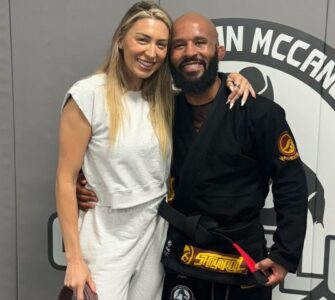Most of the jiu jitsu world is on lockdown right now, so now is the perfect time to teach you guys how I like to study jiu jitsu matches. It’s one of my favorite ways to improve my jiu jitsu, and I’ve hit moves I learned from watching tapes to win both the European and Brazilian championships.
One of the best pieces of advice I’ve ever gotten was from my friend Clifford, an Aruban blackbelt. He told me to find somebody with a similar bodytype with high level jiu jitsu, and study their matches. These are 6 steps I follow whenever I’m studying tape:
1. Gather material
Depending on the competitions your chosen competitor likes to do, Youtube, Flograppling or UFC Fightpass are your best options for gathering footage. For studying a competitor I will use dozens of matches.
2. Make notes
Just write down what’s happening. What grips is the competitor using? Which moves does he do? For every match you watch write down the positions and move that are being used. It doesn’t matter if you don’t know the name of the position, just make one up.
3. Find the cues
Watch the matches again and try to find the cue behind each move. Cues are the things that make your fire off a move. For every single one of the moves you wrote down in step 2, you should find the cue that made our competitor do the move.
4. Counter the counters?
For this you need to have some practical experience with the position. When you’re trying out a new position inevitably you’ll run into problems. Now is the time to get back to the tape and watch how the competitor deals with them.
5. What are the concepts?
During the entire process I’m keeping a list with the most important concepts.
6. Rinse & repeat
Try everything out in training and come back to the videos if you encounter any problems.
Pro tip:
If you get the opportunity try to go to a seminar or book a private class with the competitor. Some things are hard to see at competition speed, and asking the competitor how and why he or she does certain things can save a lot of time.
Check out this video where I use the Tarikoplata as a case-study to explain the process:


















